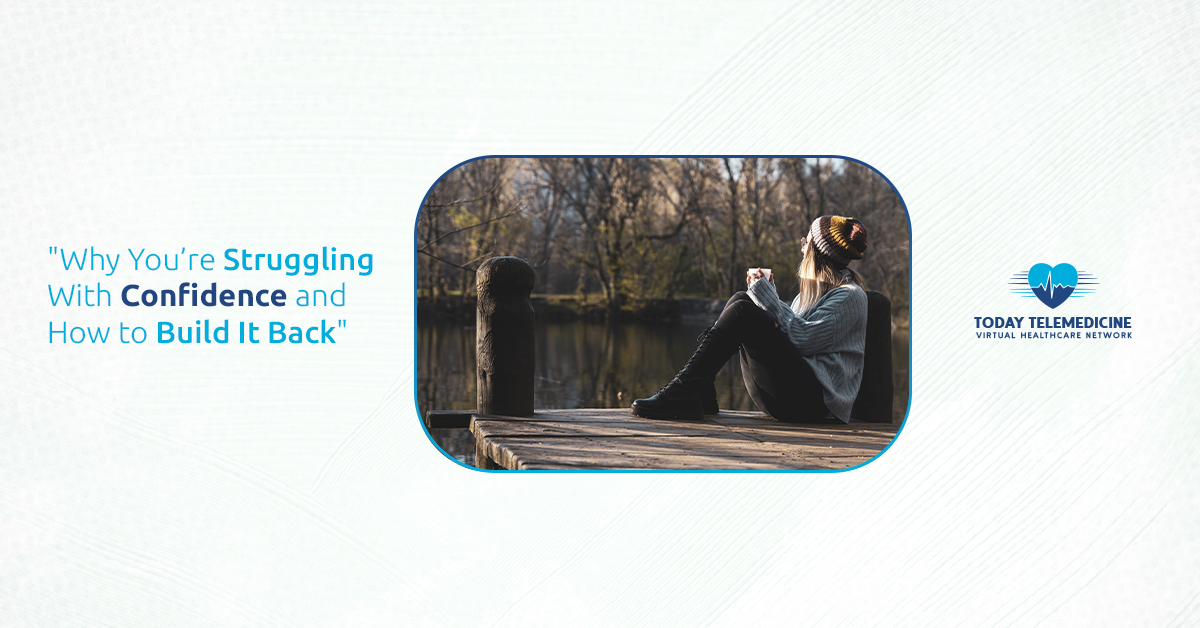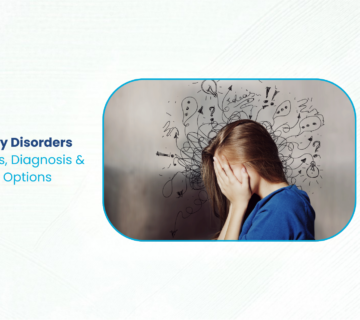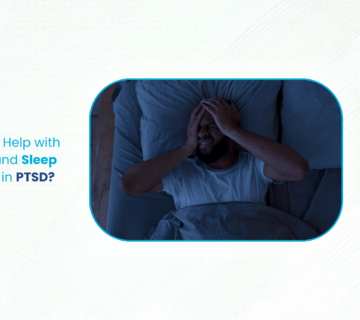Some days, you just don’t feel like yourself. You second-guess what you say. You scroll through your phone, comparing yourself to strangers. You wonder if something’s missing.
It’s confidence. Or rather, the gentle self-trust that keeps you grounded. And when it slips, it can feel like everything around you becomes unsteady, too.
If you’re dealing with this on a deeper level—where it’s affecting your sleep, your relationships, or your ability to get through the day—talking to someone can help.
Today Telemedicine connects you with a therapist who gets it, without the hassle of traditional appointments.
Why Confidence Begins to Slip
Confidence gets chipped away in ways you don’t always notice:
- You internalized someone else’s bad day – That harsh comment wasn’t about you, but you made it about you
- You’re comparing – Seeing curated versions of people’s lives online can trigger the feeling that you’re behind
- You stopped trusting your gut – Second-guessing yourself became a habit
- You’re waiting for permission – To speak up, to take up space, to have opinions
- You’ve been too nice – People-pleasing is exhausting, and it erodes your sense of self
- You have unprocessed emotions – Unresolved experiences (in the past) can create a “residue” of self-doubt
- Burnout – Emotional or mental fatigue causes difficulty in feeling confident in anything
What Confidence Actually Is
It’s not walking into a room like you own it. It’s not having all the answers or never feeling nervous.
It’s knowing you can handle things. Even when you mess up, you’ll figure it out. Even when you don’t know what you’re doing, you’ll learn as you go.
That’s it. That’s the whole thing.
How to Gently Build Confidence Again
Notice how you stand. Your body tells your brain how to feel. Stand like you belong here, because you do.
Protect your energy. Unfollow accounts that drain you. Say no when your body feels tensed. Choose softness when the world pushes for hustle.
Know what grounds you. Maybe it’s music. Or moving your body. Or being outside. Or journaling. Return to the things that remind you that you’re already whole.
Keep track of what you handle well. It can be the everyday stuff.
- You made a decision without overthinking it
- You had a conversation that felt real
- You did something even though you felt nervous
- You stood up for yourself in a small way
Choose one really small thing you fear and do it. Such as sending that text or wearing something you are not sure of.
Stop explaining yourself so much. When you say no, you can just say no. When you have an opinion, you can just have it.
Pay attention to your thoughts. Are they helping or just making noise? You don’t have to believe everything you think.
The People Part
Confidence grows when you show up as yourself around others:
- Say what you actually think – Not what you think they want to hear
- Ask for things – People aren’t mind readers, and asking shows you value yourself
- Have boundaries – You can be kind and still protect your energy
- Take compliments – Just say thanks instead of deflecting with reasons why they’re wrong
Your Inner Voice
The way you talk to yourself matters more than almost anything else. If your inner voice is mean then confidence doesn’t even stand a chance.
When you catch yourself being harsh, just pause. Ask if this is helpful right now. Usually it’s not. Then try to talk to yourself like you would a friend going through the same thing.
When to Get Help
There are cases where confidence issues run deeper beyond what can be handled on a daily basis.
When self-doubt is running your life, you start to suffer at work, or your relationships become difficult, a chat with a professional can help you understand what is really going on.
Therapy is about getting to know yourself better and acquiring means that will prove to be efficient in your specific scenario.
Where You Go from Here
Cultivating confidence is similar to strength building—it is a process and practice.
You don’t need to have it all figured out to make decisions. You don’t need permission to take up space.
Start where you are. Use what you have. Do what you can.
Talk to a Specialist
If you want to go deeper with this work, Today Telemedicine makes it easy to connect with a therapist who understands what you’re going through.
Talk to Nancy Arnovits, a compassionate Licensed Clinical Social Worker, who can help.
Your confidence is still there. It’s just been quiet for a while. Time to help it find its voice again.
Visit Today Telemedicine to get started.
FAQ
What is the duration of this?
It depends on your starting point. Many individuals experience subtle changes in a couple of weeks but the improved confidence develops over time, typically months.
What happens when I am not brave yet?
Confidence is not the absence of fear. It is the fear of doing it and doing it regardless.
Can I be confident and still doubt myself?
Yes. Confident people have doubts, too. They just don’t let doubts make their decisions for them.





